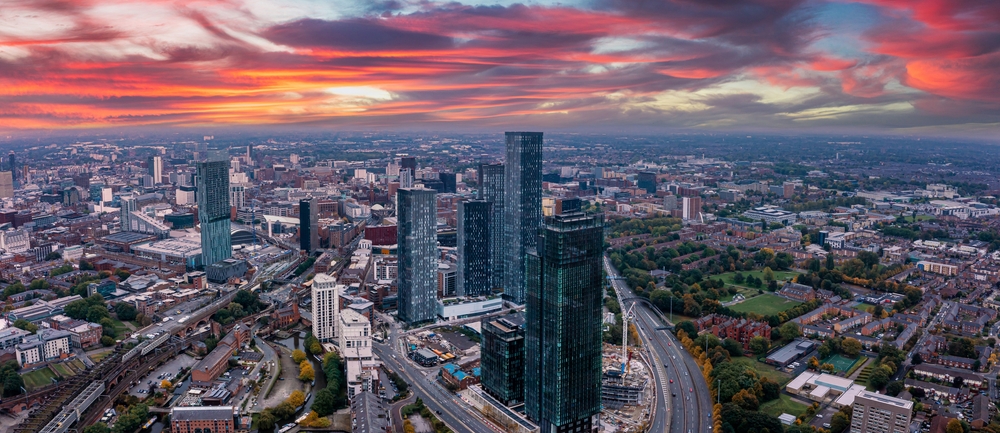Parking at London’s 250 City Road twin tower development isn't an issue—unless you drive a car. But if pedaling is more your speed, then gear up.
The new Foster & Partners high-rise in the Islington district is on track to become London’s most cycle-centric residential building, with 1,486 bicycle parking spaces (one-and-a-half for each of the 930 apartments). Just as every resident gets their own apartment key and mailbox, they will also get a dedicated bike storage unit in the basement level. One quarter of the spaces will be provided in stackable storage racks. It's the first phase of London's new bike culture.

London’s 250 City Road twin tower development is the city’s most bike-friendly residential building, with 1,486 bicycle parking spaces.
As for car parking spots, only 200 carbon dioxide-polluters get those. The message is as crystal clear as the surrounding air—motorless two-wheelers are preferred here. Giving new meaning to “riding the elevator,” these twin skyscrapers even feature special bike lifts and a bike maintenance workshop for residents in the basement of both towers—which beats getting scammed by unscrupulous car mechanics.
The towers, 46 and 32 stories respectively, occupy the site of an 1980s business park. The development will also showcase restaurants, cafes, retailers, three floors of office space and a 190-bedroom hotel, according to deZeen magazine. It reports that developer Berkeley recruited Foster & Partners after “buying the site and inheriting a previous design that it felt was not of high enough architectural merit.” Foster & Partners was up for the challenge.
The Foster & Partners’ twin towers design exceeds Transport for London’s new guidelines for high quality, bike-friendly infrastructure which are designed to transform London into a “[cycle-ized] city.” Under the guidelines, the 130,600-square-meter project would be expected to provide 1,223 spaces, according to deZeen, but Islington Council's planners insisted on even higher provision. The surrounding cluster of towers will feature similar bike-centric designs for parking and storage.
The city’s new guidelines are a proposed initiative of Mayor Boris Johnson to make London’s streets safer, healthier and to encourage more people to ride bikes (similar to what New York City accomplished under former Mayor Mike Bloomberg). Johnson has approved plans to create Europe’s longest segregated cycle lane through the city.

London Mayor Boris Johnson approved a plan to create Europe’s longest segregated cycle lane through the city.
deZeen magazine quoted Peter Murray, member of the London Mayor's Design Advisory Group, "It represents a big shift in London. All new developments have to meet the [cycle provision] requirements, but since this is a tall and dense project the impact and scale is impressive."
Foster & Partner’s reputation for cycle culture and low carbon transportation is well established (21% of its employees bike to work while another 20% walk to work). In 2014, principal Norman Foster proposed (along with collaborators Exterior Architecture and Space Syntax) “SkyCycle,” his ambitious concept design for elevated cycle paths above London’s railways, which according to deZeen, “aimed to create a 220-kilometer cycling utopia” of dedicated lanes.

In 2014, Norman Foster proposed an ambitious concept design for elevated cycle paths above London’s railways.

Architecture firm Gensler reimagined London’s abandoned tube (subway) tunnels as a subterranean network of cycle paths.
Meanwhile, architectural firm Gensler reimagined London’s abandoned tube (subway) tunnels as a subterranean network of cycle paths that generate electricity as people walk and pedal through them. Large cosmopolitan cities are putting the pedal to the metal. Bike culture is definitely fast on the move. If only London could change its bad weather culture.










